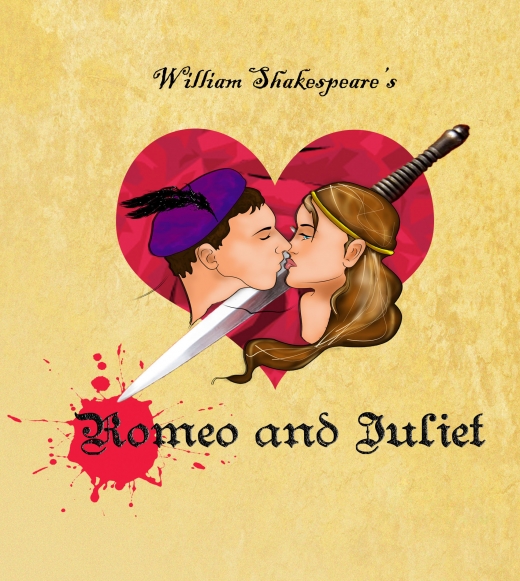In my high school English class, we spent a couple of weeks on the Romantic poets who pretty much coined the term ‘waxing poetic.’ Shakespeare was in there, and the whole section was almost as bad as algebra… until we came to Stephen Dunn’s The Flea. The Flea is a playful little ditty in which a young man attempts to convince his ‘love’ to let him take her virginity. Impishly, he points out that a flea, by biting them both, has already played metaphorical priest and mixed their bloods together (in its swollen stomach). Don’t buy it? She doesn’t either. Said flea is unceremoniously crushed betwixt her ‘purpl’d nail.’ If Shakespeare were gospel, then Lantern’s Romeo and Juliet is every bit as sacrilegious as The Flea. From the very beginning, it is apparent that this ‘sweet Verona’ is anything but saccharine. Rather, it is a crime-infested, chaotic morass where lewd, unseemly characters are on the prowl. I could have sworn I saw Mel Brooks there, chasing an actress across the stage. Did your silver-tongued professor grease over the minor detail that Juliet was 13 years old? After watching Nicole Erb’s performance, I will never forget that fact. When Erb gets excited her slightly neurotic Juliet fans out her hands like antennae to broadcast her exuberance. When flirting with Romeo, she is hapless, defensive and barely holding her own. When commiserating with her nanny about her lover, her words become garbled and gooey with infatuation. And then there is Romeo, played by the slim, dangerous Sean Lally. There is never a question of what he really wants, though under the auspices of romance, of course. This brilliant young whippersnapper has attention deficit tendencies, which seduce and repel at the same time. His compulsive pining during the famous balcony scene, for instance, eventually ignites Juliet’s intemperate temper. She finally yells at him to desist and go to bed. The affair is wholly childish, wantonly neurotic, and yet mysteriously provocative. In fact, the mysteriously-named Frank X, who plays Friar Lawrence, gives the only truly ‘Shakespearean’ performance. With grandiloquent gestures and a deep, sagely voice, he serves as the only voice of reason on the stage. It is perhaps satirical that for all his character’s wisdom, the Friar’s mistake leads to the final tragedy. Sacrilegious indeed! With any luck, Lantern theater-goers will not walk away from this play proselytizing the passion of true love. Whereas scholars and directors normally approach the work with reverence for the unparalleled affection the lovers share, Artistic Director Charles McMahon exposes the seedy underbelly of romance. Conceptually, McMahon’s Romeo and Juliet was a refreshing perspective. On the other hand, stepping outside the box did have its pitfalls. The performance was sometimes too quick, and I felt as though I was on the receiving end of a Kansas City Shuffle – I looked right; it went left. Nonetheless, it was without a doubt the most courageous, experimental performance Lantern has given this season. With all the talent and precision this theater has to offer, experimentation really pays off. — BRANDON LAFVING
LANTERN THEATER COMPANY’S ROMEO & JULIET RUNS THROUGH APRIL 1st

